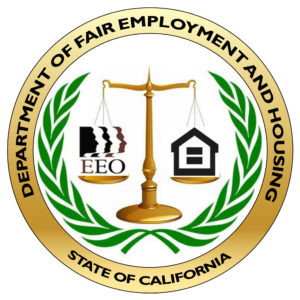By: Nathan P. Bettenhausen, Esq., Fiore Racobs & Powers, A PLC, Orange County Office
Due to the growing popularity of companies that facilitate short term rentals, such as Airbnb, HomeAway, and FlipKey, vacationers are descending onto otherwise quiet residential neighborhoods for home-based transient lodgings. These short term rentals have become a major issue for cities and homeowners associations alike as a greater influx of vacationers into residential lodgings demand both greater regulations and enforcement efforts. Many cities are also losing larger portions of tourist tax dollars by being slow, or failing altogether, to regulate this new business model. Similarly, homeowners associations are increasingly having to respond to nuisance complaints and address requests to enforce rental restrictions found in their CC&Rs. Nonetheless, the market share of short term rentals continues to grow, and both cities and homeowners associations need to create strategies to address and better respond to unique challenges posed by home-based lodgings.
The Municipal Landscape:
The surge in short term rentals is forcing cities to decide whether to regulate and tax this burgeoning industry or to ban it outright. Attempting to strike a balance between protecting neighborhoods and allowing alienability of property, many cities have passed a wide array of regulations leaving laypersons and lawyers to navigate the regulatory terrain.
Some cities, like Seal Beach, have passed admirably clear and succinct ordinances restricting short term rentals. See Seal Beach Municipal Code Section 11.4.05.135 (“No residentially zoned property, or any portion thereof, shall be leased or rented for a term of 29 days or less for any purpose …”). When challenged, such total bans have received the courts’ blessings. See Ewing v. City of Carmel-By-The-Sea (1991) 234 Cal.App.3d 1579, 1598. However, the online availability of short term rentals in areas that have total bans suggests that, despite the total bans, clandestine leasing continues. The question for cities then becomes whether to ban short term rentals altogether, or instead to capitalize on them.
As cities begin to appreciate the local economic impact of losing what could be millions in tourist taxes annually, total bans may not be the dominant regulatory trend in the future. For instance, with approximately 4,500 “hosts” in Los Angeles alone, Airbnb estimates that its Los Angeles hosts earned a total of $43.1 million, between May 2013 and April 2014.[i] It comes as no surprise, then, that Airbnb recently announced that it is in negotiations with Los Angeles to collect taxes for short term rentals.[ii]
The difficulty in finding a workable middle ground are evidenced by regulations that are anything but straightforward. Many cities have made it challenging to come to grips with the regulations because it is difficult to understand what, in fact, they are regulating. For instance, Laguna Beach laconically regulates short term rentals by only permitting them:
“within the R-1, R-2, R-3, LB/P, C-N, C-1, CH-M, and VC zoning district subject to the approval of an administrative use permit as provided for in Section 25.05.020 of this title and SLV zoning districts subject to the approval of a CUP as provided in Section 25.05.030, issued pursuant to this chapter. …” (Laguna Beach Municipal Code Section 25.23.030.)
Compared with the clarity of Seal Beach’s total ban, Laguna Beach’s regulation is positively thought-defying. Laguna Beach’s patchwork of zoning laws may prove to be too complex and onerous for laypersons to comply—as is the case in many parts of Los Angeles.[iii]
In contrast, Palm Desert enacted new regulations in 2012 that created a streamlined and affordable application process for obtaining a short term rental permit. Not only do the regulations require a $25.00 application fee and a minimum number of days for short term rentals, but they also require that the operator be available 24-hours per day for the purpose of responding within sixty (60) minutes, to complaints concerning his/her guests. Violations can result in $5,000 fines and suspensions or revocations of the permit. See Palm Desert Municipal Code Sections 5.10.010 et seq.
By making the application process more convenient and understandable, Palm Desert helps ensure greater compliance by short-term rental operators—while simultaneously appeasing some members of the community who are uncomfortable with the transitioning character of their neighborhoods. Since the least costly method by which to ensure compliance is through the adoption of a more comprehensible and streamlined regulatory scheme, cities will need to reexamine and revise their zoning and other enforcement codes in order to respond more effectively to the growing popularity of home-based transient lodgings.
Options Available for Homeowners Associations:
As the municipal regulatory landscape continues to shift, where does this leave homeowners associations? Unlike cities, associations cannot enforce rental restrictions in a non-uniform manner without appearing discriminatory, arbitrary and capricious. See Mission Shores Assn. v. Pheil (2008) 166 Cal.App.4th 789, 795. Since associations also have a vested interest in maintaining the residential character of the community and are tasked with enforcing their CC&Rs, they will need to ensure compliance with any existing short term rental restrictions and address any nuisance caused by the short term rentals.
For those associations with CC&Rs that already restrict short term rentals, the California Supreme Court has long determined that such “use restrictions are an inherent part of any Common Interest Development and are crucial to the stable, planned environment of any shared ownership arrangement.” Nahrstedt v. Lakeside Village Community Assn. (1994) 8 Cal.4th 361, 372. Moreover, as the Supreme Court suggested, the enforcement of such restrictions protects the general expectation of homeowners who purchased their homes in reliance on the restriction. See id. at 377.
However, associations must still demonstrate that a rental use restriction is reasonable and “rationally related to the protection, preservation or proper operation of the property and the purposes of the Association (citations removed)” and not arbitrary, capricious or discriminatory. Mission Shores, supra, 166 Cal.App.4th at 795; see also Civil Code Sections 711 and 5975(a). Noting that minimum lease terms help preserve the residential character of a development, the Court of Appeal in Mission Shores summarily concluded that the imposition of a 30-day minimum lease term was not unreasonable, did not violate public policy, and was not discriminatory. Id. at 796. As such, as long as associations consistently and uniformly enforce their CC&Rs’ short term lease restrictions, their enforcement efforts will likely be upheld by a court.
As for those associations that do not yet have CC&R provisions restricting short term rentals, they will have to either amend their CC&Rs or attempt to ameliorate the problems caused by transient housing. Associations can oftentimes satisfactorily address homeowner complaints of annoying and offensive activities caused by renters through their own internal enforcement methods. If, after receiving a complaint, an association investigates the complaint and makes a good faith determination that the activity constitutes a nuisance, an association can discipline the homeowner and/or seek judicial relief.
But since short term rentals are, by their very nature, transient, the misbehaving renter may be long gone before the association even commences its investigation. While this may not have an impact on the association’s determination that a specific activity constitutes a nuisance, it may have an impact on whether the homeowner’s operation of short term rentals can be deemed a nuisance by a court. Accordingly, the more proactive approach would be to amend the CC&Rs in order to reasonably restrict short term rentals. Without such a rental restriction, associations will be tasked with policing an ever growing population of transient residents.
Ultimately, while cities can afford to experiment with their regulatory schemes in order to achieve a balance that will satisfy its own economic interests and address the concerns of the public, community associations do not have that luxury. Associations will need to tackle short term rentals directly or the adverse effects of the rental practice—or else they risk endangering the residential character of their communities.
[i] (Logan, As L.A. weighs regulation, Airbnb touts its economic impact in city, Los Angeles Times (Dec. 4, 2014) <http://www.latimes.com/business/la-fi-airbnb-touts-its-impact-in-la-20141203-story.html> [as of March 13, 2015])
[ii] (Gardner, Airbnb in negotiations with Los Angeles over collecting occupancy taxes, Southern California Public Radio (Feb. 11, 2015) <http://www.scpr.org/news/2015/02/11/49756/airbnb-in-negotiations-with-los-angeles-over-colle/> [as of March 13, 2015])
[iii] (Reyes, Los Angeles gives hosts, neighbors mixed signals on short-term rentals, Los Angeles Times (Feb. 7, 2015) <http://www.latimes.com/local/california/la-me-adv-illegal-rentals-20150208-story.html#page=1> [as of March 13, 2015])
Nathan P. Bettenhausen is a Senior Associate Attorney at Fiore, Racobs & Powers, A PLC, where he practices business and real estate litigation, and provides representation to common interest developments. He can be reached at nbettenhausen@fiorelaw.com.
Orange County Lawyer, Volume 57, July 2015, Pg. 16
“The views expressed herein are those of the Author. They do not necessarily represent the views of the Orange County Lawyer magazine, the Orange County Bar Association, The Orange County Bar Association Charitable Fund, or their staffs, contributors, or advertisers. All legal and other issues must be independently researched.”











